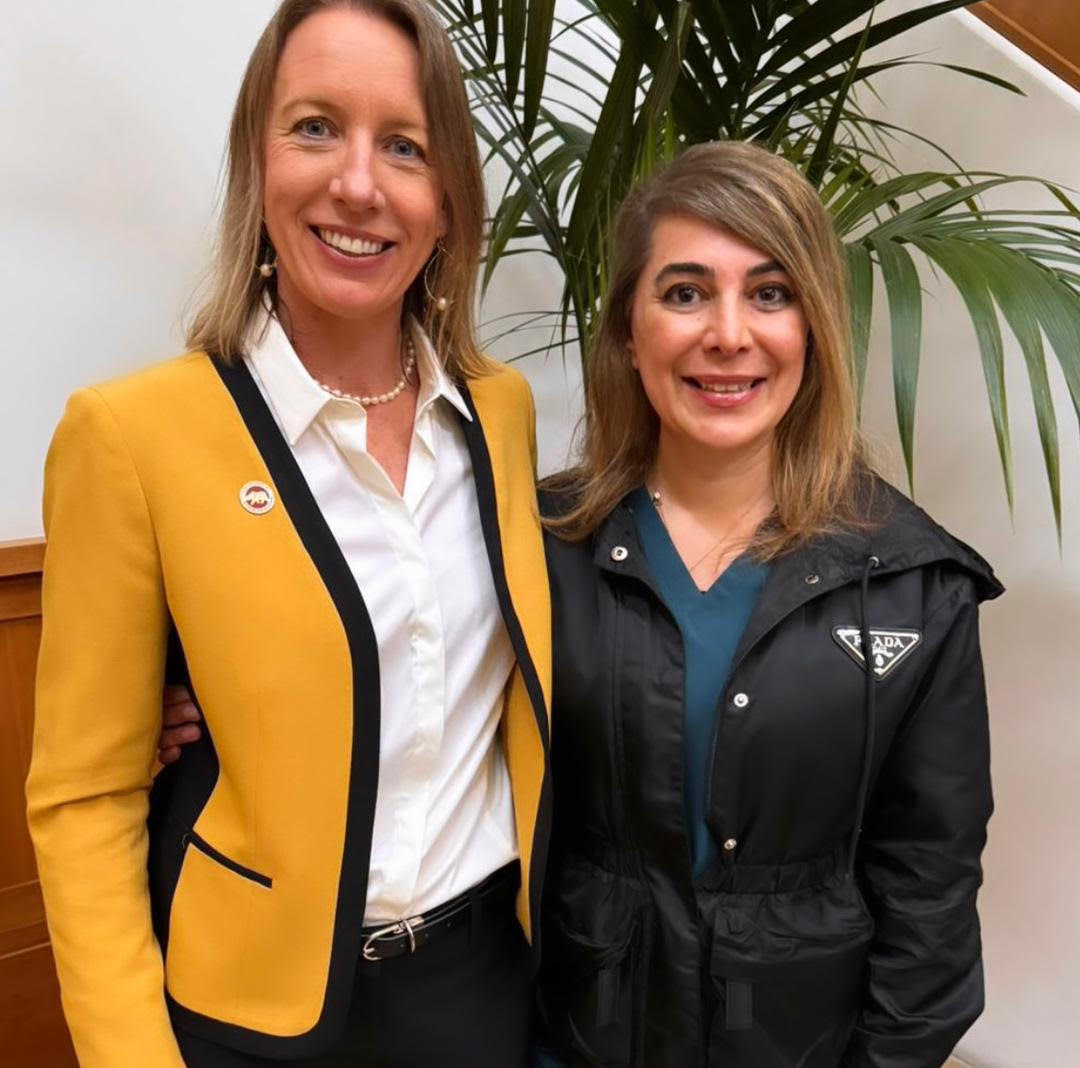We’re promoting infertility patient advocacy on Federal Advocacy Day May 14 to protect and expand the right to fertility treatment
I believe it’s crucial to actively participate in initiatives like RESOLVE’s Federal Advocacy Day on May 14, 2024, to show our support for important causes and to contribute to positive change. By participating, we have the opportunity to amplify our voice, advocate for policies that align with our values, make a meaningful impact on the issues that matter most to our community and discuss the vital advocacy needed for patients’ access to infertility care and providers’ rights to practice safely.
Federal Advocacy Day is organized by RESOLVE: The National Infertility Association, in partnership with the American Society for Reproductive Medicine (ASRM). This patient advocacy event is a day for the infertility community to advocate members of the United States Congress for increased fertility treatment options and support in financing family building efforts.
The goal of Federal Advocacy Day is promoting pro-family bills and laws in both the U.S. House and Senate that help protect all people challenged in building their family. That includes those with infertility and all members of the LGBTQIA+ community who want to utilize reproductive medicine in building a family. Advocates will seek implementation of policies that:
- Grant equal access to reproductive medical care.
- Promote insurance coverage for in vitro fertilization (IVF) and fertility preservation through egg freezing and sperm freezing.
- Bring down barriers to adoption.
- Dismantle obstacles to reproduction using third-party help, such as through surrogacy, egg donation and sperm donation.

At Ember, everyone is a VIP – very important patient
Patient advocacy against legal efforts to curtail infertility treatment access
With the recent LePage v. Mobile Clinic, Inc. ruling by the Alabama Supreme Court, our voices need to carry even more weight. Under that ruling frozen embryos were considered to have the same rights as a person. Thankfully the Alabama legislature has addressed that court ruling by protecting IVF treatment – following outrage and advocacy by many in the state.
The court ruling gave embryos personhood rights. That means destroying an embryo would constitute a crime. Other states and jurisdictions are considering similar laws in an attempt to take away the right to fertility treatments like IVF. Under such legislation, embryologists might be charged if an embryo did not survive.
This kind of legal thinking is exactly what Federal Advocacy Day is attempting to combat. With the U. S. Supreme Court sending decisions on the availability of abortion and other reproductive rights back to each state, patient advocacy of legislators becomes more vital.
Infertility patient advocacy with Senator Blakespear
I was deeply honored and grateful to recently meet with California State Senator Catherine Blakespear, District 38, San Diego and Orange counties (pictured above on the left), and discuss the vital advocacy needed for patients’ access to infertility care and providers’ rights to practice safely. It’s imperative that we speak up loudly and advocate passionately for these crucial issues.
Her support for all reproductive rights
Senator Blakespear displayed remarkable warmth and a genuine commitment to women’s rights, particularly reproductive rights. I’m excited about the prospect of working closely with her to advance this critical cause.
In my meeting with her, I emphasized the importance of ensuring that religious beliefs do not impede access to infertility treatment and threaten the closure of vital fertility centers, especially in the modern era. I stressed the need for federal insurance coverage for infertility treatments, particularly considering the significant decline in the birth rate in the United States, as indicated by recent data.
Added to that is the uptick in infertility cases, with the World Health Organization reporting that infertility now affects 1 in 6 people of reproductive age. It’s imperative that we address these issues to ensure that all individuals have equitable access to reproductive healthcare options.
We can all advocate for reproductive rights & infertility treatment
I hope to accomplish several key objectives through RESOLVE’s Advocacy Day. Firstly, I aim to raise awareness about the challenges faced by individuals and families dealing with infertility and advocate for improved access to affordable and comprehensive fertility care. Additionally, I hope to support legislative initiatives that promote fertility education, research and insurance coverage.
Ultimately, my goal is to make a meaningful impact by advocating for policies that empower individuals to pursue their reproductive goals with dignity and support.
There are several ways that the average citizen can advocate for improved access to fertility care. Firstly, educating oneself about the challenges faced by individuals and couples dealing with infertility is crucial. This includes understanding the financial, emotional and medical aspects of infertility.
Additionally, citizens can reach out to their elected representatives to express support for legislative initiatives aimed at improving fertility care access, such as advocating for insurance coverage for fertility treatments and medications. Writing letters, making phone calls and participating in advocacy events like RESOLVE’s Advocacy Day are effective ways to make your voice heard.
Furthermore, raising awareness within your community about the importance of fertility care access and destigmatizing conversations around infertility can help drive positive change. This can involve sharing personal stories, organizing informational events or participating in online discussions.
By collectively advocating for fertility care access, citizens can help ensure that individuals and couples facing infertility have the support and resources they need to pursue their reproductive goals.

Reflecting on RESOLVE’s Federal Advocacy Day
Update: May 17, 2024
It was an immensely gratifying experience to advocate for fertility rights and engage in insightful discussions with representatives of the U.S. House and Senate
Throughout an entire day of Zoom meetings, I felt deeply honored and privileged to contribute as both a High-Complexity Clinical Lab Director (HCLD) and embryologist, providing valuable insights into the daily operations of our embryology lab. I underscored the unwavering dedication of embryologists and lab directors in achieving remarkable results daily for our patients. Many of us invest extensive hours, even sacrificing weekends, to ensure the success of these vital procedures.
The recent ruling in Alabama was met with collective dismay by the diligent community of embryologists and reproductive endocrinologists. Nonetheless, we found solace in the assurances provided by the staffers of representatives in Congress and the Senate, who expressed unwavering commitment to championing these rights and enhancing accessibility for all, regardless of gender, religion, or location.
Moving forward, we are resolute in our determination to follow up with their offices and advocate for necessary improvements. Stay tuned for further developments on this crucial issue.
Update: June 25, 2024
I continue to advocate for IVF and reproductive rights, including ongoing outreach to lawmakers. As of June 2024, I have received responses from senators at the state and federal level in support of this cause. We will keep up the fight!

